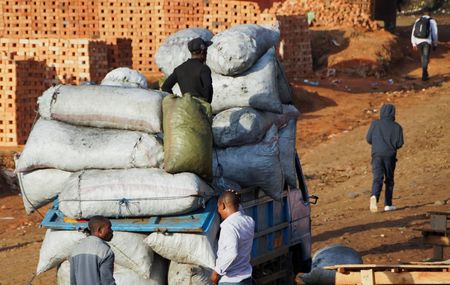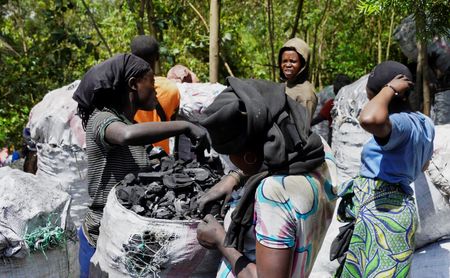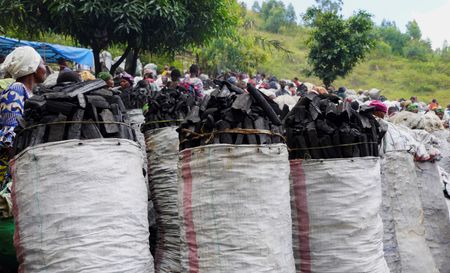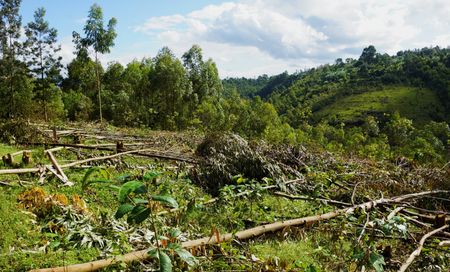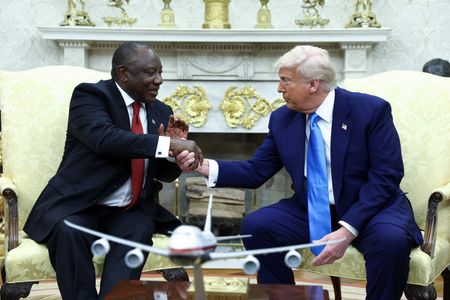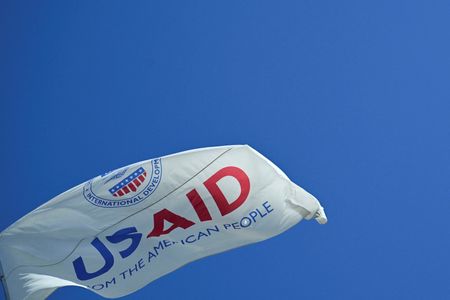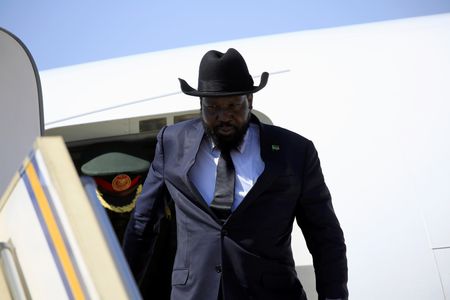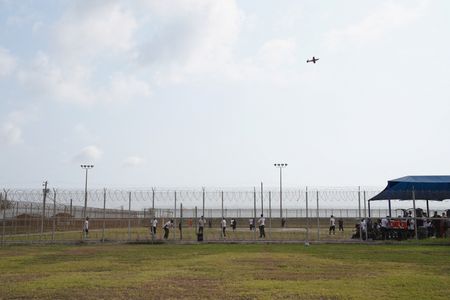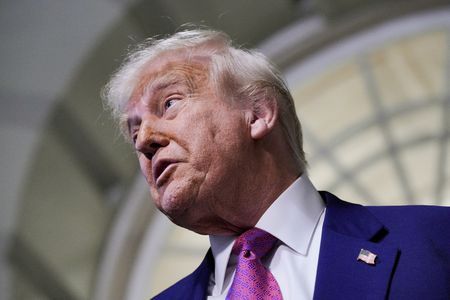KABARE, Democratic Republic of Congo (Reuters) -Tropical forests in eastern Congo that fell into rebel hands this year have seen a spike in illegal logging to produce charcoal and timber, residents and environmentalists said, raising fears of large-scale degradation.
The Kahuzi-Biega National Park is a UNESCO World Heritage site west of Bukavu, the second-largest city in eastern Congo, which was seized by Rwanda-backed M23 rebels in February. It is home to hundreds of species of birds and one of the last groups of eastern lowland gorillas, also known as Grauer’s gorillas.
The advance this year of M23, which now holds more territory than ever in eastern Congo, has reopened roads that were once restricted due to government checkpoints, enabling more efficient transport of goods – including charcoal, known locally by the Swahili word makala.
That has led to more trees being felled in and around the park, charcoal producers and traders told Reuters.
“We plant trees for clean air, but also to make charcoal, produce planks and for construction,” said Espoir Gedeon, who transports timber from the forests near Bukavu.
The producers and traders said charcoal prices have plunged as supply has surged. Bags weighing up to 70 kg that once fetched 120,000 Congolese francs (about $40) now sell for less than half that.
In the Murhesa charcoal market, 27 km (17 miles) north of Bukavu, vendors said they now buy bags for around 45,000 francs and resell them in Bukavu for a modest markup.
“That’s how God is helping us. We manage to feed our children and also get soap for laundry,” said vendor Sifa Bahati.
But conservationists warn that the charcoal boom is coming at a steep ecological cost.
Environmental groups have appealed in a letter to M23 leaders to stop illegal logging, warning of possible irreversible damage to biodiversity and forest ecosystems.
Neither the M23-appointed governor of South Kivu province nor an M23 spokesperson responded to a request for comment.
“At least 3,000 bags (of charcoal) enter Bukavu daily, or head towards Goma,” said Josue Aruna, head of the NGO Environmental and Agro-Rural Civil Society of Congo in South Kivu. Goma is the largest city in eastern Congo.
“If this continues, we will lose the park, this unique habitat for the Grauer’s gorilla.”
(Reporting by Congo newsroom; Writing by Sonia Rolley; Editing by Robbie Corey-Boulet and Jan Harvey)


